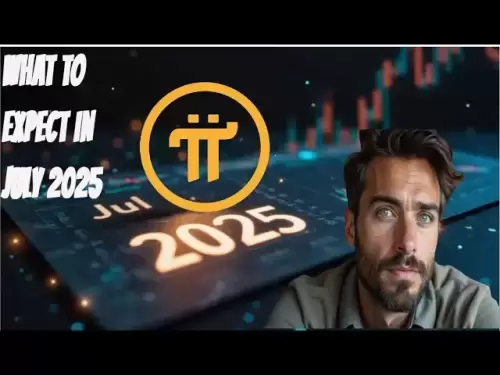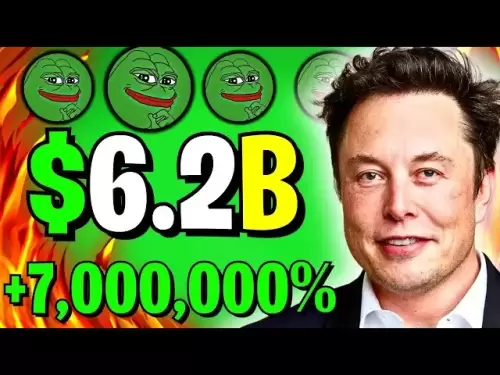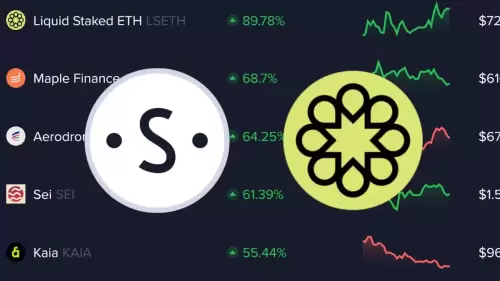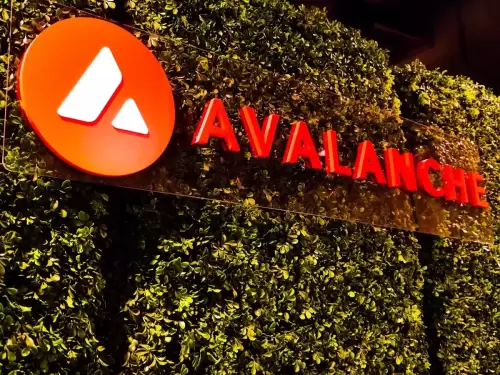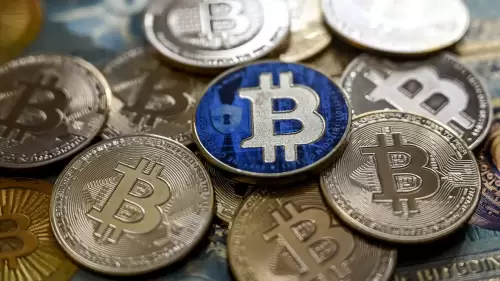 |
|
 |
|
 |
|
 |
|
 |
|
 |
|
 |
|
 |
|
 |
|
 |
|
 |
|
 |
|
 |
|
 |
|
 |
|
Cryptocurrency News Articles
Why Ripple's Massive XRP Holdings Are a Strategic Advantage, Not a Flaw
May 12, 2025 at 10:13 pm
XRP community researcher Anderson argues that Ripple's large stash of XRP is a strategic advantage, not a flaw.

A fresh perspective on Ripple’s massive XRP holdings has brought back discussions within the crypto community.
XRP community researcher Anderson argues that Ripple’s large stash of XRP is a strategic advantage, not a flaw. He stated that Ripple’s holdings align its financial interests with XRP’s long-term adoption and value growth.
According to Anderson, if Ripple had little to no XRP, it would have less financial motivation to prioritize building out the XRP Ledger (XRPL) ecosystem over focusing on other blockchain projects.
However, having a significant volume of XRP gives the company a strong incentive to put a priority on completing this task.
“Those with significant holdings of a particular coin are often the most likely to be interested in seeing it succeed. For example, we see this with Michael Saylor's strong advocacy for Bitcoin and the early contributors to Ethereum, who invested during the token sale and contributed their vision to shape the project's future,” explained Anderson.
To further his point, the researcher shared a video featuring Miguel Vias, Ripple’s former Head of XRP Markets. Vias was responsible for building XRP’s market infrastructure and liquidity during his tenure. His comments highlight how Ripple’s XRP reserves strengthen the market and support adoption.
Key points from Vias include the fact that Ripple can lend XRP to professional market makers at attractive rates, enhancing liquidity. Vias stressed that this is a difficult feat to achieve with Bitcoin.
Additionally, in less-liquid cross-border payment corridors using Ripple Payments, the company can temporarily cover cost gaps, encouraging usage until those corridors become self-sustaining.
Vias also noted that liquidity drives both utility and price. He explained that the more liquidity there is, the more utility XRP has – and, in theory, the more valuable it becomes over time.
This approach positions Ripple as a long-term ecosystem builder. Rather than selling XRP for short-term gains, the company is using its balance sheet to set the foundation for adoption in the global payments infrastructure.
While skeptics often cite the risk of centralization with Ripple’s large XRP holdings, proponents like Anderson believe those holdings may be critical for accelerating XRP’s utility and eventual valuation.
As of the end of 2024, Ripple held 42.51 billion XRP, with 4.48 billion tokens in spendable balances and 38 billion in escrow. However, the most recent data from Ripple’s API shows the company now holds 36.53 billion tokens in escrow and 4.906 billion in spendable wallets. This brings its total XRP war chest to 41.43 billion, worth $104.83 billion today.
With this massive financial position, Ripple CEO Brad Garlinghouse recently disclosed that the company’s strategy includes pursuing acquisitions of financial institutions that could further enhance its crypto-based payment solutions. The most recent — and most expensive — was its April acquisition of prime broker Hidden Road.
Pundits believe Hidden Road’s integration into the XRP ecosystem could lead to trillions of dollars in inflows.
Disclaimer:info@kdj.com
The information provided is not trading advice. kdj.com does not assume any responsibility for any investments made based on the information provided in this article. Cryptocurrencies are highly volatile and it is highly recommended that you invest with caution after thorough research!
If you believe that the content used on this website infringes your copyright, please contact us immediately (info@kdj.com) and we will delete it promptly.



















